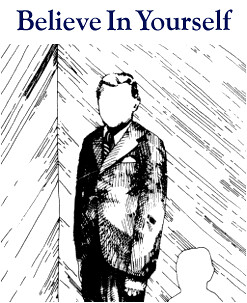| View previous topic :: View next topic |
| Author |
Message |
shantaram

Joined: 10 Apr 2007
|
 Posted: Wed Jun 20, 2007 6:40 pm Post subject: 'W'? Posted: Wed Jun 20, 2007 6:40 pm Post subject: 'W'? |
 |
|
| A colleague of mine thinks my speech is unusual because I pronounce 'w' at the start of these words: water, wood, would (and some other words probably). She pronounces water 'odder' and wood becomes 'ood'. She's convinced this is standard American pronunciation. I'm not American but I have never heard an American say 'odder' for water. I think she might be getting water mixed up with order (Would you like some water? Would you like to order?) I don't know about ood. I know the 't' sound in water is unaspirated in American speech. But what about the w? Ot's the story? I mean what's the story? |
|
| Back to top |
|
 |
ilovebdt

Joined: 03 Jun 2005
Location: Nr Seoul
|
 Posted: Wed Jun 20, 2007 7:13 pm Post subject: Posted: Wed Jun 20, 2007 7:13 pm Post subject: |
 |
|
Are they a native speaker?
ilovebdt |
|
| Back to top |
|
 |
ttompatz

Joined: 05 Sep 2005
Location: Kwangju, South Korea
|
 Posted: Wed Jun 20, 2007 7:13 pm Post subject: Re: 'W'? Posted: Wed Jun 20, 2007 7:13 pm Post subject: Re: 'W'? |
 |
|
| shantaram wrote: |
| A colleague of mine thinks my speech is unusual because I pronounce 'w' at the start of these words: water, wood, would (and some other words probably). She pronounces water 'odder' and wood becomes 'ood'. She's convinced this is standard American pronunciation. I'm not American but I have never heard an American say 'odder' for water. I think she might be getting water mixed up with order (Would you like some water? Would you like to order?) I don't know about ood. I know the 't' sound in water is unaspirated in American speech. But what about the w? Ot's the story? I mean what's the story? |
Your college odder do something about her pronunciation.
Unless I missed some strange accent somewhere I can't think of anyplace in the states that drops the "W".
I could believe it of the British however as well as the dropped "H"s (but that ood only be a rumor and subject to a determination if they otter do it. that way or not.)
All kidding aside, it is a Korean habit to drop the "W" and NOT an American one.
. |
|
| Back to top |
|
 |
icnelly
Joined: 25 Jan 2006
Location: Bucheon
|
 Posted: Wed Jun 20, 2007 7:14 pm Post subject: Posted: Wed Jun 20, 2007 7:14 pm Post subject: |
 |
|
from the US, and I pronounce my W in water. AND, the 'T' in my water is aspirated/pronounced, whichever the right word is.
I've never heard anyone pronounce water like odder.
Do you have a paddle, or do you need to borrow mine to spank the CT?? Seriously though: J/K about the spanking!
I don't tend to correct my CTs cuz I have the feeling they'll really resent it. How do you two talk about this so openly? Or, was it openly discussed only because she thought your pronuncation was unusual...  
EDIT: unusual over wrong, sorry. |
|
| Back to top |
|
 |
kat2

Joined: 25 Oct 2005
Location: Busan, South Korea
|
 Posted: Wed Jun 20, 2007 7:16 pm Post subject: Posted: Wed Jun 20, 2007 7:16 pm Post subject: |
 |
|
| Yeah, thats a standard Korean pronunciation problem. Its as common as the p/f or v/b problem. Does she say oolf for wolf too? Tell her you are the native teacher, not her and to shut her trap. Ok, maybe not taht harshly, but I freaking hate when Koreans try to teach ME how to speak English. I've lived all over the US and tehre's no one that says this or would even consider it. |
|
| Back to top |
|
 |
ilovebdt

Joined: 03 Jun 2005
Location: Nr Seoul
|
 Posted: Wed Jun 20, 2007 7:18 pm Post subject: Re: 'W'? Posted: Wed Jun 20, 2007 7:18 pm Post subject: Re: 'W'? |
 |
|
| ttompatz wrote: |
| shantaram wrote: |
| A colleague of mine thinks my speech is unusual because I pronounce 'w' at the start of these words: water, wood, would (and some other words probably). She pronounces water 'odder' and wood becomes 'ood'. She's convinced this is standard American pronunciation. I'm not American but I have never heard an American say 'odder' for water. I think she might be getting water mixed up with order (Would you like some water? Would you like to order?) I don't know about ood. I know the 't' sound in water is unaspirated in American speech. But what about the w? Ot's the story? I mean what's the story? |
Your college odder do something about her pronunciation.
Unless I missed some strange accent somewhere I can't think of anyplace in the states that drops the "W".
I could believe it of the British however as well as the dropped "H"s (but that ood only be a rumor and subject to a determination if they otter do it. that way or not.)
All kidding aside, it is a Korean habit to drop the "W" and NOT an American one.
. |
No, there is a W in water and wood in the UK too 
ilovebdt |
|
| Back to top |
|
 |
shantaram

Joined: 10 Apr 2007
|
 Posted: Wed Jun 20, 2007 7:30 pm Post subject: Posted: Wed Jun 20, 2007 7:30 pm Post subject: |
 |
|
We talked about it in one of those moments where the ice melts. It freezes again pretty quickly. Yes, she's a Korean teacher.
A Korean friend of mine also makes the same mistake. She thinks 'would' is pronounced like a schwa followed by a 'd'. It can of course be contracted at the end of another word, but she uses it like this, "Ud you like to see that movie?" making a great gulp out of the word.
As for my colleague- looney. |
|
| Back to top |
|
 |
faster

Joined: 03 Sep 2006
|
 Posted: Wed Jun 20, 2007 8:55 pm Post subject: Posted: Wed Jun 20, 2007 8:55 pm Post subject: |
 |
|
| A very common Korean error that is never found in any native English dialect. Hard for Koreans to unlearn this bad habit, too. |
|
| Back to top |
|
 |
Freaka

Joined: 05 Jun 2007
|
 Posted: Wed Jun 20, 2007 9:01 pm Post subject: Posted: Wed Jun 20, 2007 9:01 pm Post subject: |
 |
|
As everyone before me said, yes, the "w" in "water" is aspirated. The same goes for "wood" and "would."
In speech, I pronounce "water" as "waw der." But if I had to stress the word, "water," I'd probably pronounce it as "waw ter" with an emphasis on the "t." |
|
| Back to top |
|
 |
shantaram

Joined: 10 Apr 2007
|
 Posted: Wed Jun 20, 2007 9:07 pm Post subject: Posted: Wed Jun 20, 2007 9:07 pm Post subject: |
 |
|
The w-a-w thing could be the key.
I just pronounce w-a-. |
|
| Back to top |
|
 |
mehamrick

Joined: 28 Aug 2006
Location: South Korea
|
 Posted: Wed Jun 20, 2007 11:17 pm Post subject: Posted: Wed Jun 20, 2007 11:17 pm Post subject: |
 |
|
| If I was going to place that type of an accent anywhere in the states it would have to be around Boston.. But even then thats pushing it.. Never heard of anyone droping the w before... |
|
| Back to top |
|
 |
shantaram

Joined: 10 Apr 2007
|
 Posted: Thu Jun 21, 2007 3:19 am Post subject: Posted: Thu Jun 21, 2007 3:19 am Post subject: |
 |
|
| I sent a message around to the kingpin teachers about this. Basically I said I had spoken to some Americans who verified that they pronounce water the same way I pronounce it. I added that it is a Korean pronunciation problem. Couldn't have timed it better (or worse) as I soon found out that the vice principal has told Korean teachers not to speak in English in class (showing a lot of faith in his teachers pronunciation abilities- not), and the next lesson turned out to be "Can I have some water?" with the prime culprit. "What would you like?" even reared its ugly head in that lesson, and I felt confident enough to weed out the Konglish from the middle of the sentence. So thanks guys, for helping me realise my pronunciation is normal. |
|
| Back to top |
|
 |
Woland
Joined: 10 May 2006
Location: Seoul
|
 Posted: Thu Jun 21, 2007 1:58 pm Post subject: Posted: Thu Jun 21, 2007 1:58 pm Post subject: |
 |
|
Koreans have problems producing the glides /w/ and /y/ in front of certain sets of vowels, reflecting phonotactic restrictions that exist in Korean.
/y/ is problematic before the high front vowel /i/ as in 'beat'. This leads them to confuse 'yeast' and 'east' in production.
/y/ is problematic before the high back lax vowel /U/ as in 'put' (the most similar vowel in English to Korean's high back lax unrounded vowel). This may cause problems with production of unstressed 'you'd' in fast speech, for example.
/w/ is problematic before the high back tense vowel /u/ and the high back lax vowel /U/, causing problems with 'wolf' and 'would', as noted by many here.
/w/ is problematic before the back mid tense vowel /o/, as in 'boat', causing problems with 'woeful'.
There should not be a problem before other vowels, which means that problems with /w/ before the low back tense vowel (symbol can't be produced here) as in 'bought' are striking. Koreans I know generally do not have a problem with pronouncing 'water'. The low back tense vowel has a near equivalent in Korean, and /w/ occurs before it in Korean, as in 'weol'. The back vowels are complex and messy, though, and if Koreans are trying to produce it with a high back lax vowel, then they may have trouble with it.
A few more notes, just because.
While both American and British English speakers standardly produce /w/ at the beginning of 'water', their pronunciation of the two words is not identical. The /t/ in American pronunciation is flapped (produced as a quick tap of the tongue against the alveolar ridge (the bony ridge behind the teeth)) and voiced. This makes the sound seem like a /d/ to many British English speakers. British English speakers produce the /t/ as a voiceless stop [t]. Flapping is a significant marker distinguishing American from British dialects.
Note that Korean speakers may perceive the American flap as an /r/ because flap is one of the realizations of the phoneme /l/ in Korean.
Aspiration is a property of voiceless stops before stressed vowels in English and, thus, completely irrelevant to this discussion. |
|
| Back to top |
|
 |
|

